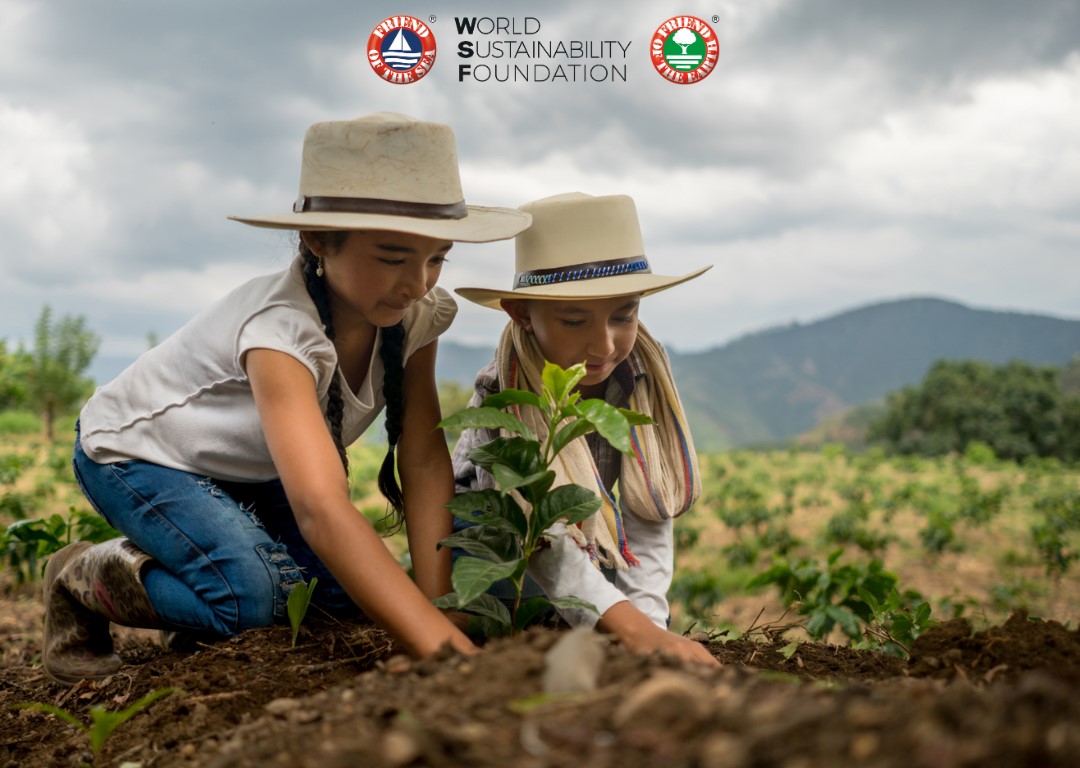World Sustainability Foundation (WSF), the non-profit arm of the World Sustainability Organization has launched an innovative project aimed at spearheading sustainable tourism globally. The 1 Guest – 1 Tree Planted initiative seeks to get tourism facilities to plant one tree, per guest.
The project is dedicated to all tourist facilities such as hotels, resorts, lodges, B&Bs, and campsites around the world.
The World Sustainability Foundation would commence the project by planting trees in Central Africa, however, other destinations can be considered upon request.
WSF Reforestation Project
The reforestation project will consist of planting trees where they were already previously present, and only endemic species will be planted. Local communities will also be rewarded, while biodiversity and wildlife are protected; ultimately combating climate change.
Forests, among all other ecosystems, are responsible for the maintenance of life on earth. Forest cover is an indispensable part of rain cycles as it helps purify the air, filter water, and cover a large amount of substances that can support human health. Woodland is critical for both humans and animals; offering nutrition and protection, while potentially avoiding the exodus to urban environments, which can lead to a series of zoonoses being wildly spread across towns.
Since its establishment, the World Sustainability Foundation has been involved in numerous conservation projects worldwide, including those which it has established in Italy, Madagascar, Galapagos, Perù, Mongolia, and Vietnam. It does so through a collaborative network of states, institutions, research centers, universities, and businesses certified by Friend of the Sea® or Friend of the Earth®.
Unveiling the Global Impact
Globally, one major threat to human and animal life is Deforestation. Also referred to as forest clearance, it is the removal of a forest or stand of trees from land which is subsequently converted to non-forest use. It involves the conversion of forest land to farms, ranches, or urban use. The most concentrated deforestation occurs in tropical rainforests.
Reports reveal Deforestation led to an annual loss of 4.4 million hectares of forest in Africa between 2015 and 2020. In Central Africa, the direct drivers of deforestation are the production and exploitation of commodities which involve a change in land. Additionally, national economies within the sub-region are not extensively diversified, and as a result, depend heavily on the export of agricultural commodities and mining products such as palm oil, cocoa, coffee, cotton, rubber, and timber which are identified as the major deforestation-heavy sectors.
Deforestation has dire impacts; altering the patterns of rain, and causing floods and droughts. This act of forest denudation leads animals to escape towards cities; increasing conflicts between humans, cattle, and pets. In the bargain, the large fires caused by deforestation kill endangered species of animals, fungi, and plants, some of which may even not be known to humans.
Reforestation is a key strategy to combating deforestation; it works to protect the environment by facilitating and essentially accelerating the re-establishment of healthy forest structure, through the process of regrowing the forest canopy and preserving biodiversity within the ecosystem.
Transforming Tourism into a Force
The tourism sector plays a critical role in the preservation of the environment, if not effectively managed, tourism puts an enormous strain on local land use and can contribute to soil erosion, increased pollution, natural habitat loss, and more pressure on endangered species.
By collaborating with the World Sustainability Foundation on the 1 Guest – 1 Tree Planted initiative, tourism facilities also demonstrate their commitment to sustainability, environmental conservation, and preservation of natural resources. This not only supports the reforestation efforts of WSF, but serves as evidence of the facilities’ adherence to responsible tourism, potentially contributing to increased customer satisfaction and loyalty, among environmentally conscious travellers.
Trees have been around for 470 million years, with 1.6 billion people relying on forest resources for their livelihoods. Deforestation leads to an increase in the world’s temperature, which not only affects land but also bodies of water, and destroys all kinds of life. By collaborating with the World Sustainability Foundation on the 1 Guest – 1 Tree Planted Project, tourist facilities become a part of the solution by championing reforestation; through the involvement of guests and local communities, protection of local biodiversity and wildlife, ultimately tackling climate change by absorbing CO2 in Central Africa and potentially other geographical areas.
Tourist facilities all over the world are welcome to participate in the 1 Guest – 1 Tree Planted Project of the World Sustainability Foundation. For further information on the initiative click here, you can also reach WSF via email at info@worldsustainabilityfoundation.org.




